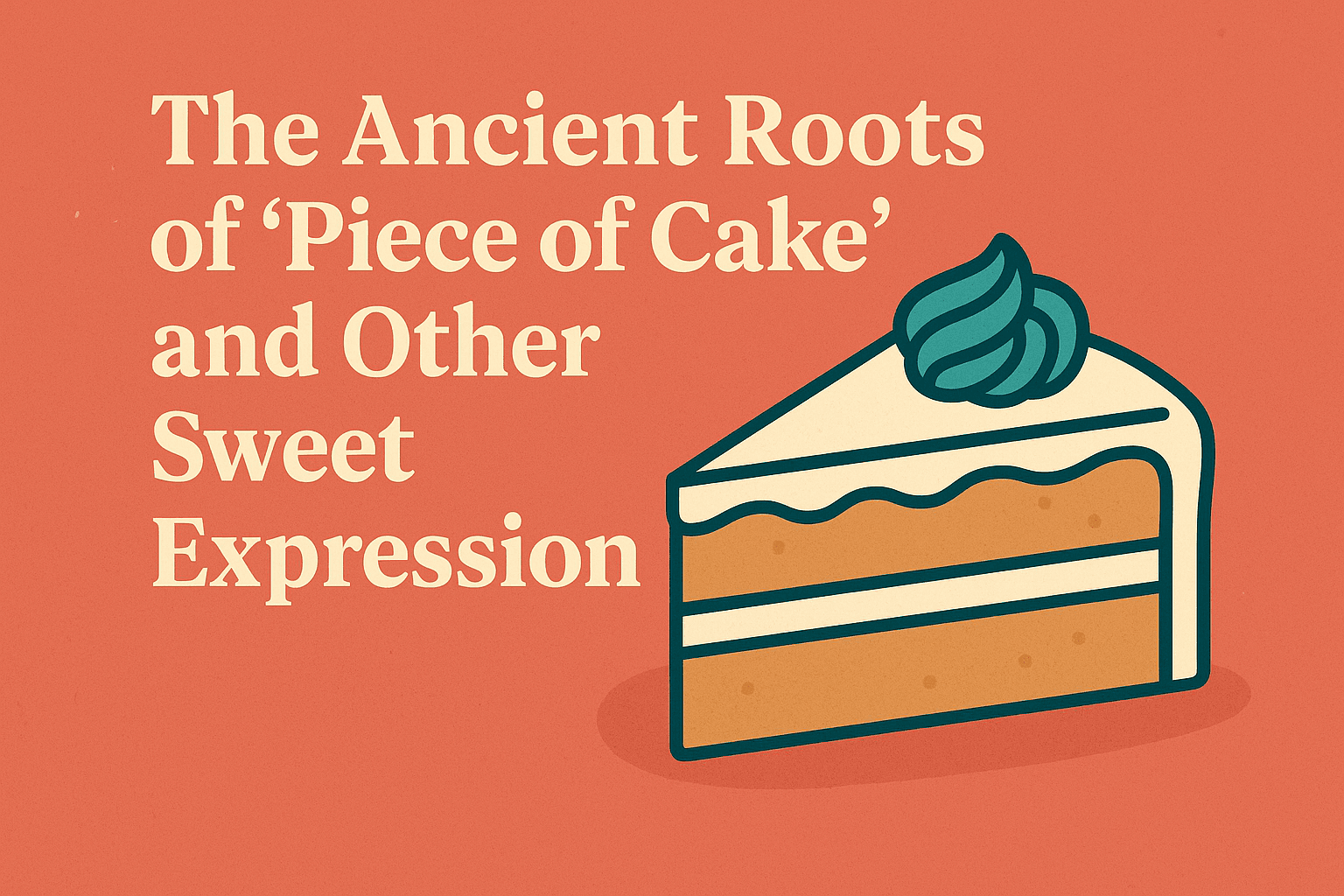English is full of strange expressions that make little sense when taken literally—like “kick the bucket,” “spill the beans,” or “break the ice.” These are idioms: colorful, figurative phrases that reflect the culture, history, and evolution of the English language.
But where do these quirky sayings come from? Why do we say them, and how do they survive across generations? In this article, we’ll take a journey through the origins of English idioms, uncovering their roots and how they became everyday language.
What Is an Idiom?
An idiom is a phrase or expression whose meaning is different from the literal meaning of its individual words. For example:
- “Let the cat out of the bag” doesn’t involve cats or bags—it means to reveal a secret.
- “Hit the hay” means to go to sleep.
- “Under the weather” means feeling unwell.
Idioms are deeply tied to culture and shared knowledge, making them difficult for non-native speakers to understand without context.
👉 Learn more about idioms at Cambridge Dictionary – Idiom Definition
The Earliest English Idioms
Many idioms in English date back hundreds of years, and their original meanings have often changed or faded over time.
1. “Break the ice”
Origin: Comes from the practice of breaking ice to allow ships to pass through frozen waters. Later used metaphorically in literature—especially Shakespeare—to describe starting conversation.
2. “Kick the bucket”
Origin: Likely comes from old execution or animal slaughter practices, where a bucket was kicked from under the subject’s feet.
3. “Bite the bullet”
Origin: From battlefield surgeries in the 1800s, where soldiers bit bullets to endure pain without anesthesia.
🔗 More idiom origins at Oxford English Dictionary’s Word Stories
Idioms from Literature and Theater
Some of the most famous idioms were popularized by authors, particularly William Shakespeare and the King James Bible.
Shakespearean Idioms:
- “Wild-goose chase”
- “In a pickle”
- “Wear one’s heart on one’s sleeve”
Shakespeare had a profound impact on modern English. Many expressions we use today first appeared in his plays.
Biblical Idioms:
- “By the skin of your teeth” – Book of Job
- “A thorn in the side” – 2 Corinthians
- “Go the extra mile” – Sermon on the Mount
These idioms gained popularity due to the widespread reading and memorization of scripture.
Idioms from Trades and Professions
Many idioms come from sailors, soldiers, farmers, and craftsmen, whose practical language became common speech.
- “Know the ropes” – Sailing ships
- “Let the cat out of the bag” – Market trade trickery
- “Cut to the chase” – Film editing jargon from early Hollywood
Language often borrows from the tools and routines of everyday work, especially when professions were more central to communities.
How Idioms Change Over Time
Some idioms stick around for centuries, while others fade away. Here’s why:
Survival Factors:
- Relatability – Easily understood or felt by people
- Repetition – Used frequently in speech, media, or literature
- Imagery – Strong, clear visual helps memory
Evolution in Action:
- “Hang up the phone” makes little sense in the age of smartphones
- “Roll down the window” is still said, even with buttons
- *“Film” a video – used even without film
These examples show how idioms outlast the technology or context they came from.
Idioms Around the World
English isn’t the only language rich in idioms. Other languages have their own unique expressions that reflect their culture and worldview:
- French: “Appeler un chat un chat” – Call a cat a cat (Speak plainly)
- Spanish: “Estar en la luna” – To be on the moon (Daydreaming)
- Japanese: “猿も木から落ちる” (Even monkeys fall from trees – Experts make mistakes)
- German: “Ich verstehe nur Bahnhof” – I only understand “train station” (It’s all Greek to me)
🔗 Check out FluentU’s list of idioms in other languages
Idioms in Modern Culture
Today, idioms continue to evolve thanks to:
- Internet memes
- Pop culture catchphrases
- Social media slang
For example, “spill the tea” (gossip) and “throwing shade” (insulting subtly) are modern idioms born in digital spaces.
Some may fade quickly; others may stick around and become future idioms.
Why Idioms Matter
Idioms are not just linguistic curiosities. They:
- Enrich language
- Add color and creativity
- Reflect cultural values
- Create shared understanding
Mastering idioms helps language learners sound more natural and fluent. It also offers insight into how a culture thinks, feels, and expresses itself.
Final Thoughts: Idioms Are Living History
So where do English idioms come from? They come from everywhere—sailing ships, Shakespearean plays, farmer’s markets, old films, and digital chatrooms.
Idioms are the fingerprints of history on modern speech. They remind us that language is more than vocabulary and grammar—it’s a living record of how people have lived, worked, and laughed over centuries.
Next time you “let the cat out of the bag” or “hit the nail on the head,” you’re carrying a piece of history with you—one quirky, metaphorical phrase at a time.




